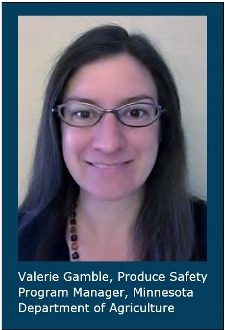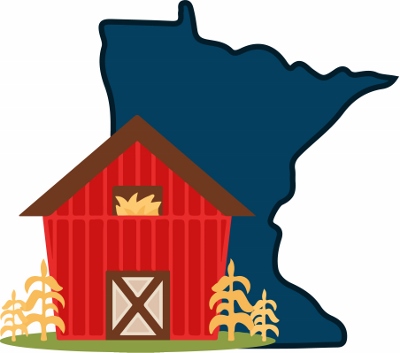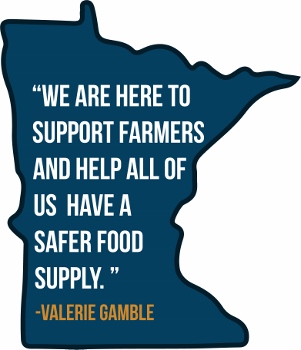Sowing the Seeds of Success
Thoughtful planning process yields better results for a new program at the MDA
 Last spring, the Minnesota Department of Agriculture (MDA) partnered with The Improve Group (IG) on a strategic planning process to implement a new USDA food safety produce rule that will impact produce growers and handlers throughout Minnesota. Our mission at the MDA is to enhance Minnesotans’ quality of life by ensuring the integrity of our food supply, the health of our environment and the strength of our agricultural economy.
Last spring, the Minnesota Department of Agriculture (MDA) partnered with The Improve Group (IG) on a strategic planning process to implement a new USDA food safety produce rule that will impact produce growers and handlers throughout Minnesota. Our mission at the MDA is to enhance Minnesotans’ quality of life by ensuring the integrity of our food supply, the health of our environment and the strength of our agricultural economy.
Minnesota is a top agricultural state, boasting a rich diversity of farms and farmers, and we knew we would need to get a lot of new information about the produce safety rule out into many different communities. With a number of challenges—such as growers speaking languages other than English, unfamiliarity with government programs and inspections, concerns about record-keeping, lack of access to Internet and other technologies, and others—how would we go about assisting farmers in learning about the rule and making any needed changes across the state?
 Going into the strategic planning process, we wanted to create a plan consistent with our values and those of IG: one that would be culturally responsive and foster equity. As the team lead on this process, I would like to share some of my thoughts on how working with IG helped us ensure that our approach was the right one.
Going into the strategic planning process, we wanted to create a plan consistent with our values and those of IG: one that would be culturally responsive and foster equity. As the team lead on this process, I would like to share some of my thoughts on how working with IG helped us ensure that our approach was the right one.
First, we wanted to bring in as many stakeholders as possible to really learn what was important and of concern to them. It was important for us to just listen and learn. Using a Culturally Responsive Approach, the IG team worked with us to identify and convene a Stakeholder Advisory Group that represented many different points in the produce distribution chain—from small farmers and growers to manufacturers, wholesalers and distributors. IG also conducted key informant interviews with a number of individuals who work in different parts of the system, from diverse cultural communities (e.g., Amish, Latino, Hmong, Karen), to organizations such as the Hmong American Farmers Association, The Good Acre, the Minnesota Apple Growers Association, Minnesota Grocers Association, and others.
IG led the core MDA team through a planning process that involved deep reflection on and integration of the ideas that emerged from the advisory committee meetings and interviews. This process gave us new understanding of how to customize our messaging and support for different groups in order to help farmers implement Produce Safety Rule requirements.
 While we uncovered many useful strategies through this process, an overarching theme that emerged was that there is no one-size-fits-all approach. A second related and strong theme was that an effective, and customized program will require ongoing attention to developing trust and deepening relationships with diverse communities and stakeholders. Deepening our relationships with community stakeholders will be the guiding ethos for implementing the rule, which we will live out through one-on-one meetings with members of the supply chain and ongoing advisory meetings. Our hope is for this program to embody authentic engagement rather than using more traditional approaches to gathering input that often result in stakeholders not feeling heard.
While we uncovered many useful strategies through this process, an overarching theme that emerged was that there is no one-size-fits-all approach. A second related and strong theme was that an effective, and customized program will require ongoing attention to developing trust and deepening relationships with diverse communities and stakeholders. Deepening our relationships with community stakeholders will be the guiding ethos for implementing the rule, which we will live out through one-on-one meetings with members of the supply chain and ongoing advisory meetings. Our hope is for this program to embody authentic engagement rather than using more traditional approaches to gathering input that often result in stakeholders not feeling heard.
Because this is a new program for the MDA, we have a special opportunity to weave in a thoughtful process from the very beginning and to structure and tailor our program to the needs of our produce growers and other stakeholder organizations. Working with partner organizations who know and are trusted in the community, we are able to get our message out: We are here to support farmers and help all of us have a safer food supply. That is something everyone can get behind.
About the Author
Valerie Gamble is the Produce Safety Program Manager at the Minnesota Department of Agriculture. Previously she worked as an inspector and supervisor in the food inspection program and worked with industry groups, non-profit organizations, and state and local agencies around Minnesota to provide information and raise awareness of food and feed safety programs and regulations. She has a Master’s Degree in Geological Sciences and also worked for five years with organic and conventional farms and orchards in California, first directly with farms and then with the Agricultural Extensions program at the University of California, Davis.

